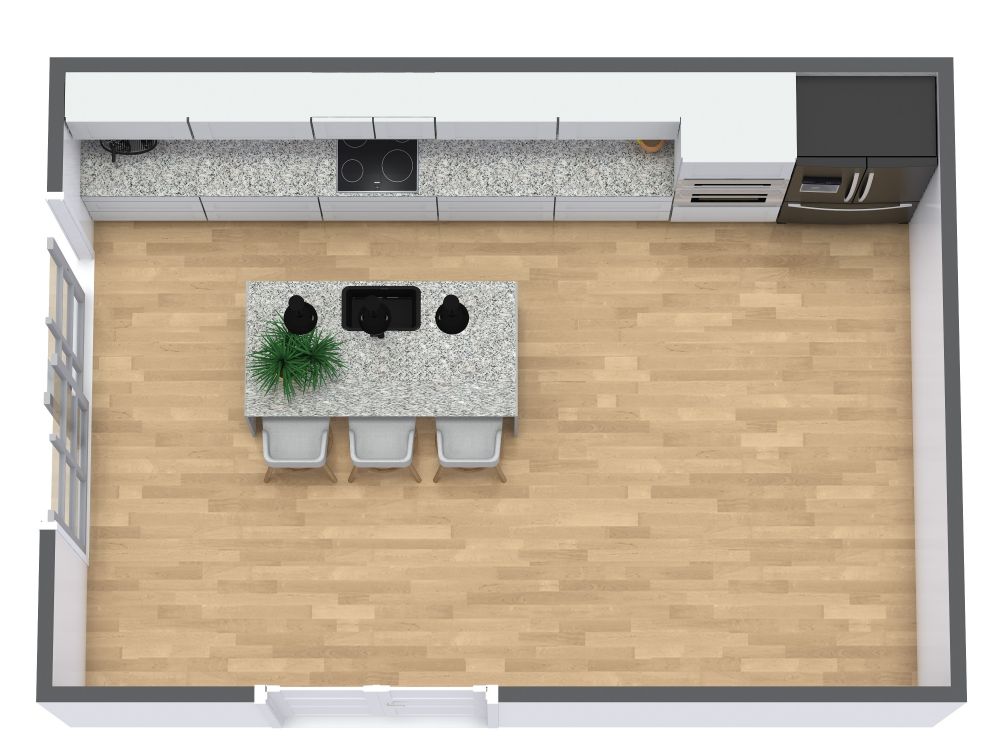Designing a kitchen layout when your home uses well water requires specific considerations to ensure efficiency and maintenance ease. Unlike city-supplied water, well water comes directly from the ground, which means its quality and availability might vary. This guide will help homeowners optimize their kitchen layout while considering the unique challenges presented by well water.
Whether you are remodeling or building from scratch, understanding how well water impacts your design choices is crucial. From sink placement to water filtration integration, different elements need special attention. Let’s walk through the key aspects of designing a kitchen layout with well water in mind.
Contents
Understanding Well Water Characteristics
Before planning your kitchen layout, it’s essential to understand the characteristics of your well water. Factors like water hardness, mineral composition, and potential contaminants can impact both the placement and the type of appliances you choose. Consider consulting a professional to test your water quality. This assessment can guide your decisions, particularly about installing filtration systems. A comprehensive understanding will also prevent long-term damage to fixtures due to hard water staining or buildup. Further details on evaluating your well water can be found on this website.
If significant issues are present in your water quality, planning for an integrated water treatment system within the kitchen area becomes indispensable. Quick access to treated water can influence where sinks or dishwashers are placed for maximum functionality in the kitchen space.

Incorporating Water Filtration Systems
For homes using well water, integrating a high-quality water filtration system into the kitchen design is crucial. Strategic placement of these systems can ensure seamless functionality and aesthetics within your kitchen setup. Place filtration systems near points of use, such as main sinks or refrigerators with ice and water dispensers, but consider ease of maintenance access as well.
Because filters need regular changes, ensure your design allows easy access without having to move heavy appliances frequently. Cabinetry customized to conceal filters while offering easy access can be a perfect blend of function and style in such setups.
Optimizing Sink Placement and Plumbing
Sink placement is critical in kitchens using well water because you’ll want to minimize piping length from filtration systems and ensure efficient drainage. An ideal placement is centrally located but also proximate to natural light – aiding in better visibility during usage which is further pivotal if dealing with high sediment content in your water.
Additionally, invest in high-quality plumbing hardware resistant to corrosion and build-up often seen with well water use. Consider faucets with built-in filtration capabilities as another layer of protection against impurities.
Choosing Appropriate Kitchen Appliances
Selecting appliances suitable for well water usage is another key aspect of kitchen layout design. Appliances such as dishwashers and refrigerators that work efficiently with softer or treated water will offer longer lifespans and reduced maintenance needs.
Professional-grade dishwashers designed for hard water conditions can be more resistant to scaling and will conserve the amount of soap needed per wash cycle — ideal for well-watered homes looking for sustainability and efficacy.
Maintenance Accessibility
A crucial but often overlooked aspect of designing kitchens with well water is ensuring easy accessibility for ongoing maintenance. Plan open spaces or easily removable panels near potential problem areas like under-sink plumbing or near filtration systems.
This consideration not only helps during routine checks but also reduces frustration during repairs or unexpected maintenance issues, ensuring that your kitchen remains functional and accessible at all times.
In summary, designing a kitchen for homes with well water calls for a detailed assessment of the water quality and tailored designs that meet these specific needs. By integrating smart plumbing solutions, optimal appliance choices, and an efficient layout focusing on longevity and ease of maintenance, homeowners can achieve a functional and wellness-focused kitchen environment.
Rethinking traditional approaches by incorporating these insights will transform your kitchen into a space equipped for sustainability and health-conscious living despite being reliant on well-water systems.


More Stories
Easy Immigration Solutions: Your Trusted Lawyer Guide
How To Navigate Immigration Law: A Lawyer’S Guide
How-To Navigate Immigration Law: A Lawyer’S Guide